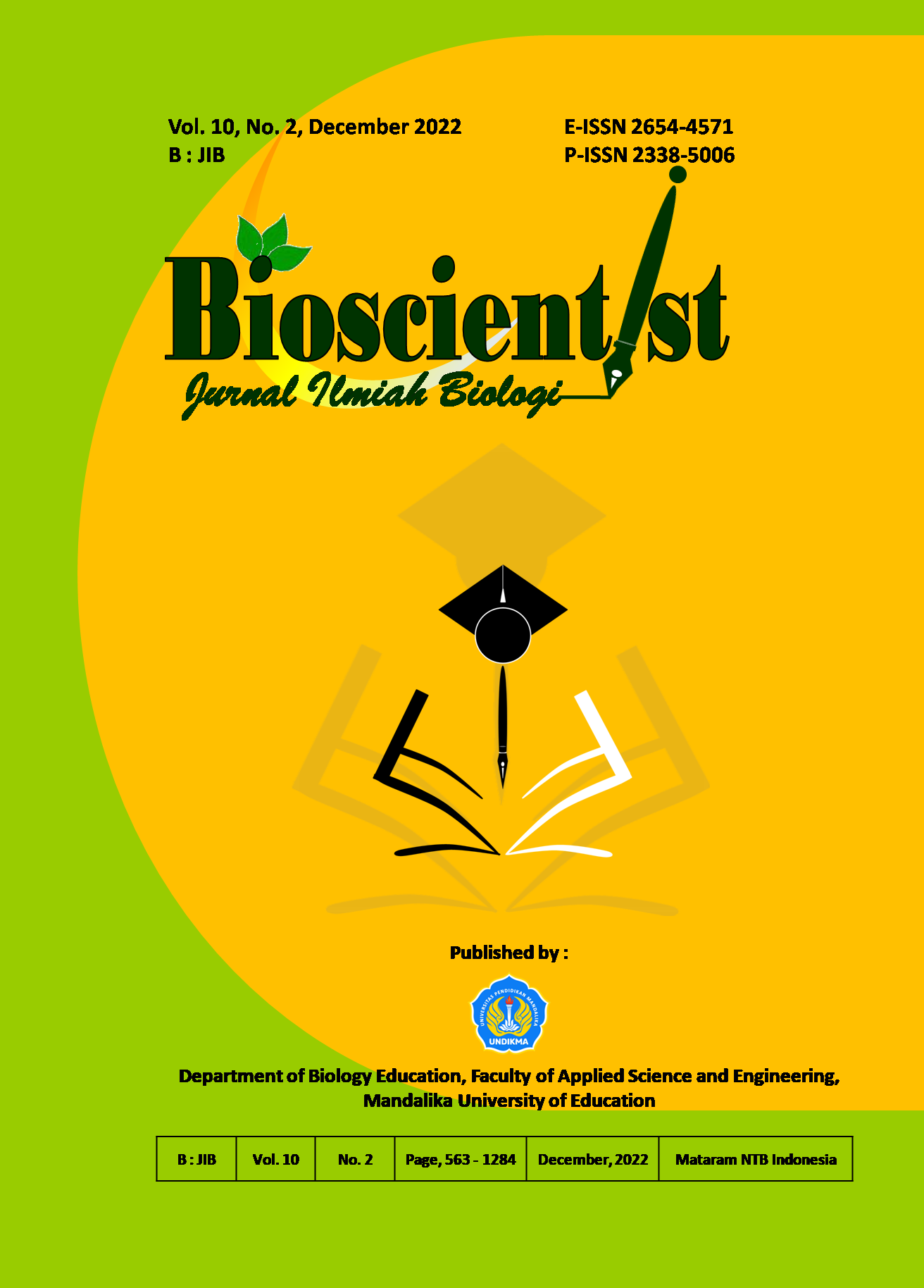Pengaruh Model Pembelajaran Hybrid Learning terhadap Hasil Belajar Kognitif pada Materi Sistem Reproduksi
DOI:
https://doi.org/10.33394/bioscientist.v10i2.6293Keywords:
Hybrid Learning, Results Learning.Abstract
Hybrid Learning refers to the learning process that combines or mix among learning process between face-to-face learning and computer-based learning. This Study aims to know the effect of the Hybrid Learning model on the results study on Theory system reproduction at XI grade of MAN Tebing Tinggi. The type of this study is Quasi Experiment with quantitative approach. The sample of this study are the experiment class were consisting of 30 students and controlling class were consisting of 31 students. The Technique of analyzing data collection by using 20 multiple choice test. The Validity of this research instrument obtained by validity test, reliability, difficulty level, and problem differentiator. The Technique of analyzing data by using Test Normality, Test Homogeneity and Test Hypothesis. Studies show tat students taught by applying the Hybrid Learning model have an average 80,83 learning result. Whereas the students taught by applying conventional learning models have an average result of learning 69,67. The conclusion of this study is that the results of the t test calculation show that the t count is 6.52 and the t table is 2.15 p with a significant level of 95 % or = 0.05. Because t count > t table (6,52> 2, 15), then the alternative research hypothesis (Ha)is accepted, which means the hypothesis answered. There is the effect of the Hybrid Learning model on results study students.References
Huda, M. (2013). Model-model Pengajaran dan Pembelajaran. Yogyakarta: Pustaka Pelajar.
Husamah. (2014). Pembelajaran Bauran (Blended Learning). Jakarta: Prestasi Pustakarya.
Jaya, I. (2013). Penerapan Statistik untuk Pendidikan. Bandung: Citapustaka Media.
Makhin, M. (2021). Hybrid Learning: Model Pembelajaran pada Masa Pandemi di SD Negeri Bungurasih Waru Sidoarjo. Mudir: Jurnal Manajemen Pendidikan, 3(2), 95-103.
Mardianto. (2014). Psikologi Pendidikan. Medan: Perdan Publishing.
Puspitorini, D.A., Indriyanti, D.R., Pribadi, T.A., dan Hardiyanti, L.N. (2020). Peningkatan Hasil Belajar Kognitif melalui Pembelajaran TPSW Berbasis Hybrid-Learning Materi Sistem Sirkulasi. Bioma, 9(1), 41-53.
Rambe, R.N. (2019). Perbandingan Hasil Belajar menggunakan Model Contextual Teaching and Learning (CTL) dan Model Make a Match Mahasiswa Pendidikan Guru Madrasah Ibtidaiyah UIN Sumatera Utara. Laporan Penelitian. UINSU Medan.
Salim, dan Syahrum. (2014). Metodologi Penelitian Kuantitatif. Bandung: Citapustaka Media.
Siregar, S. (2016). Statistika Deskriptif untuk Penelitian: Dilengkapi Perhitungan Manual dan Aplikasi SPSS Versi17. Jakarta: PT. Raja Grafindo Persada.
Verawati, dan Desprayoga. (2019). Solusi Pembelajaran 4.0: Hybrid Learning. In Seminar Nasional Pendidikan Program Pascasarjana Universitas PGRI Palembang (pp. 1183-1192). Palembang, Indonesia: Universitas PGRI Palembang.
Wahyuni, A.S. (2021). Penerapan Model Hybrid Learning dalam PTM Terbatas untuk Meningkatkan Motivasi dan Hasil Belajar Siswa. Indonesian Journal of Educational Development, 2(3), 472-481.













